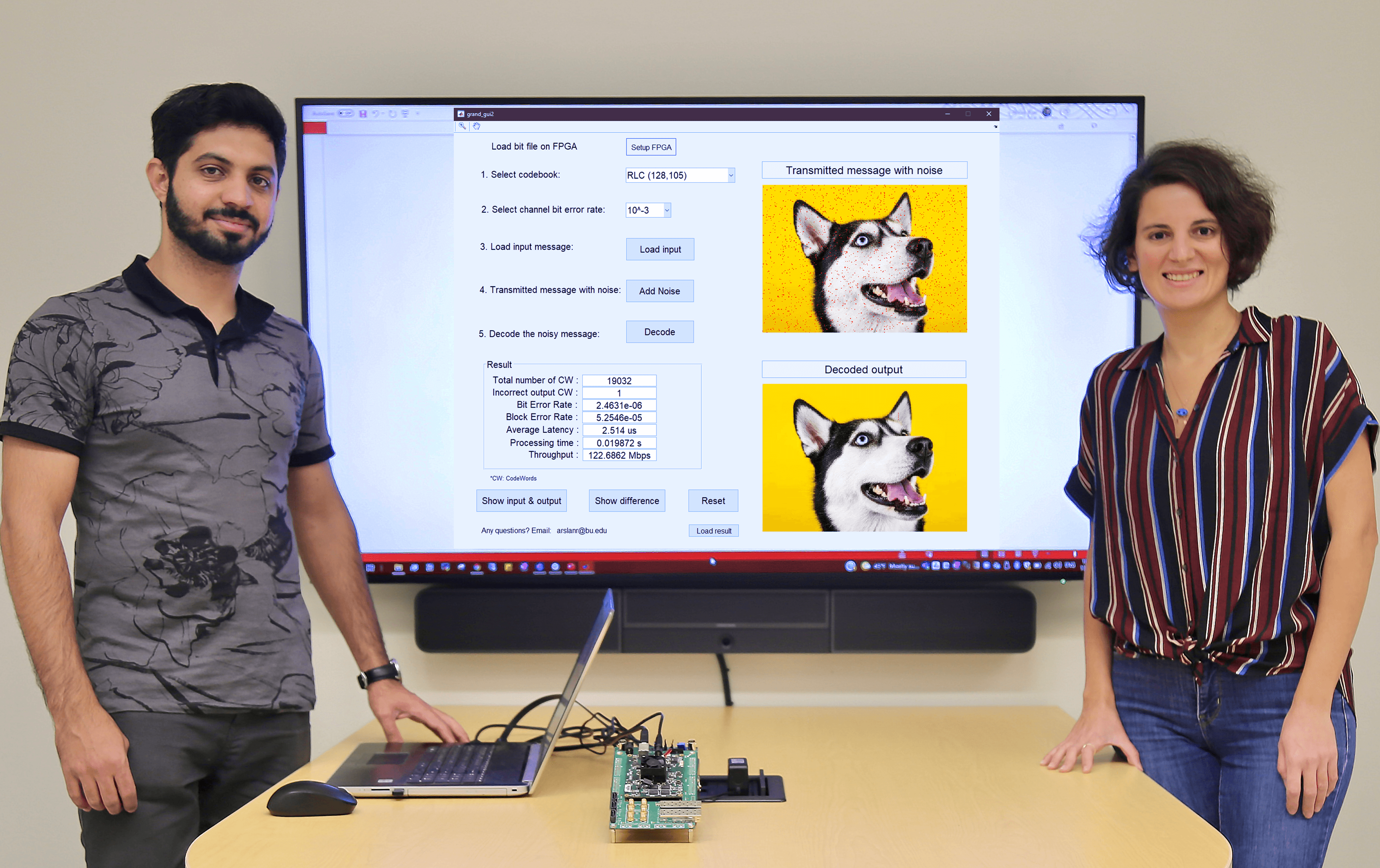Arslan Riaz awarded COMSNETS 2022 Best Research Demo Award

Arslan Riaz, PhD candidate (ECE), won the “Best Research Demo” award at the 14th International Conference on COMmunication Systems & NETworkS (COMSNETS 2022) January 3-8, 2022.
Riaz demonstrated the first fully-integrated universal Maximum Likelihood Decoder in 40 nm CMOS using the Guessing Random Additive Noise Decoding (GRAND) algorithm. This novel technology provides a universal system for decoding any type of data transmitted across a network or stored on a device. In so doing, the GRAND decoder reduces the computational complexity of existing decoders, which require dedicated, code-dependent hardware with restricted properties. Since GRAND is independent of code structures, this low-power, high-throughput technology can potentially have a significant impact on 5G networking and connected devices as well as a breadth of data-intensive applications such as augmented and virtual reality, and gaming.
“It was an honor to lead this demonstration at COMSNETS 2022,” says Riaz. “I had a lot of interesting questions from demo attendees, who represented academia and industry. Researchers were particularly excited about the chip’s ability to enable seamless swapping between codebooks with no downtime, enabling use by multiple applications simultaneously.”
The GRAND chip demonstration at COMSNETS 2022 was conducted to show the first fully-integrated universal decoding of any binary linear code. The demo showed that the GRAND chip could decode the information that used any code structure with good decoding performance. To visually show the universal decoding, a multimedia input was used. It was coded by using different codebooks, and Additive White Gaussian Noise was added to represent the received message corrupted by the channel noise. This was then decoded by the GRAND chip, which successfully removed the noise and showed the cleaned output image along with performance metrics.
GRAND is a collaborative research development between researchers at Boston University, the Massachusetts Institute of Technology, and the National University of Ireland, Maynooth. The research at Boston University is led by Riaz’ advisor, Rabia Yazicigil, Assistant Professor in the Department of Electrical Engineering and Director of the WISE-Circuits lab; at MIT, by Muriel Médard, the Cecil H. and Ida Green Professor in the Department of Electrical Engineering and Computer Science; and at Maynooth University, by Prof. Ken R. Duffy, director of the Hamilton Institute.
“This research demonstration showed the merits of GRAND and in particular, its potential to change the way we communicate and store information, says Yazicigil. “Because this one piece of hardware is compatible with any coding schemes that will be developed, it’s future-proofing too.”
The Demo and Exhibits session at COMSNETS is designed for academic and industry researchers, including startups, to showcase their latest research, products, or prototypes that demonstrate advances in networking, communication, sensing, emerging areas in computing, and machine learning systems. Selected participants from academia and industry, such as IBM, Samsung, among others, presented demonstrations of their research projects. Participants were judged through a peer review process based on technical merits and the evaluation of the jury and their feedback during live demo sessions.
Arslan Riaz is currently a third-year Ph.D. student in the ECE Department of Boston University and a member of the WISE-Circuits lab. His PhD research is oriented towards developing energy-efficient and secure wireless communication systems in collaboration with MIT and Maynooth University. Read more about his work here.
By Maureen Stanton, CISE